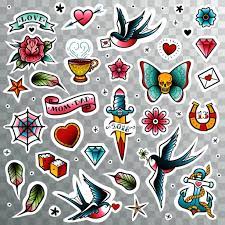
Japanese tattoos have a history of being associated with criminality and delinquency. In the 7th century, these Tattoos were given only to criminals or delinquents. However, modern female Japanese tattoos have evolved into designs that reflect both pure qualities and illicit sides of women. Kitsune tattoos, depicting spiritual foxes with good and evil aspects, are trendy among women as they boldly state their nature.
Dragons
Dragons are revered symbols in Japanese culture, representing powerful guardians who protect against misfortunes and evil forces. Women commonly choose to have dragon Tattoos on their thighs, hands, necks, and backs as protective designs. Tattooing oneself with a dragon symbol can demonstrate courage and strength, especially for women who serve as guardians of family and country. A dragon head tattoo can further showcase bravery.
Koi Fish
Koi fish tattoos hold various meanings and symbolic representations in Japanese tattoo art. Black koi symbolizes masculinity, blue koi represents a son in a family, and differently colored koi can tell love or passion. People who opt for koi fish Tattoos often seek a visual reminder of their ability to achieve goals and overcome challenges. The koi symbolizes perseverance and represents equilibrium when combined with the yin-yang symbol.
Oni Mask
The one mask is a symbol of power and protection. It is depicted as an intimidating creature with incredible strength and ferocity. Oni mask tattoos inspire individuals to challenge existing norms and embrace their sense of independence. They also symbolize the pursuit of spiritual enlightenment by confronting inner demons and eliminating negative influences. Small oni mask Tattoos with intricate black designs can be placed anywhere on the body, making them captivating conversation starters for girls who enjoy showing off their unique tattoo designs.
Shichibusode
Tattoos, known as irezumi in Japan, were first introduced through Chinese novels featuring bandit heroes with intricate body art expressing discontent with the government or royalty. While tattoos remain controversial in Japanese culture, they have become associated with criminality. Men in Japan tend to avoid dating women with Tattoos due to traditional views of women as housewives and mothers. Many women conceal their tattoos to protect their jobs and avoid social stigma.

